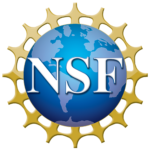There’s a growing buzz surrounding artificial intelligence (AI) and its applications in various domains, including healthcare, art, literature and transportation. Soon, the gentle hum coming from an AI-enabled supercomputer housed at the National Center for Supercomputing Applications will be added to the chorus.
NCSA received a $10 million award from the National Science Foundation (NSF) to deploy DeltaAI, an advanced computing and data resource that will be a companion system to NCSA’s ACCESS resource, Delta. DeltaAI will triple NCSA’s AI-focused computing capacity and greatly expand the capacity available within the NSF-funded ACCESS ecosystem.
“We’re very excited about this expansion in our ability to support AI research,” said NCSA Director and Principal Investigator Bill Gropp. “DeltaAI provides about double the performance of Delta and will be integrated into the same complex while also remaining separate projects.”
The DeltaAI system builds upon the efforts and successes of NCSA’s Delta system, seamlessly leveraging the existing NSF investment in that infrastructure. This will be achieved by deploying DeltaAI using similar system and storage hardware, and the same high-speed interconnect. A vast array of next-generation graphics processors (GPUs) delivers a technological leap in AI computing capability which will make DeltaAI the keystone in the NSF AI computing portfolio for years to come.
Advanced web-based interfaces will make the resource more usable by the growing community of research domains employing AI methods in their research and significant computing capacity will make more resources available to a more diverse group of researchers.
“DeltaAI will provide powerful capabilities for simulation and data science, with a strong emphasis on support for AI, which is in growing demand across many fields of science and engineering,” Gropp said. “This project seeks to expand the use of AI methods in research by providing easier access, training offerings and other support to promote a wider demographic of researchers. These project goals align with our greater mission at NCSA and the NSF effort to democratize high-performance computing.”
DeltaAI represents a step in the direction recommended by the National Artificial Intelligence Research Resource (NAIRR) Task Force, which urged an intergovernmental effort to increase funding for machine learning and AI research. In particular, the NAIRR Task Force noted the need for more resources to strengthen and democratize the U.S. Artificial Intelligence innovation ecosystem.The allocation system will address the computational and data analytics needs of the nation through a variety of allocation processes. NSF will manage 90 percent of the available computing resources via ACCESS (Advanced Cyberinfrastructure Coordination Ecosystem: Services & Support) with the DeltaAI project coordinating the remaining 10 percent to be allocated by the University of Illinois Urbana-Champaign.
Project Details
Institution: NCSA (National Center for Supercomputing Applications)
University: University of Illinois Urbana-Champaign
Funding Agency: NSF
Award Number: 2320345
The ACCESS program is supported by National Science Foundation grants #2138259, #2138286, #2138307, #2137603, and #2138296.


